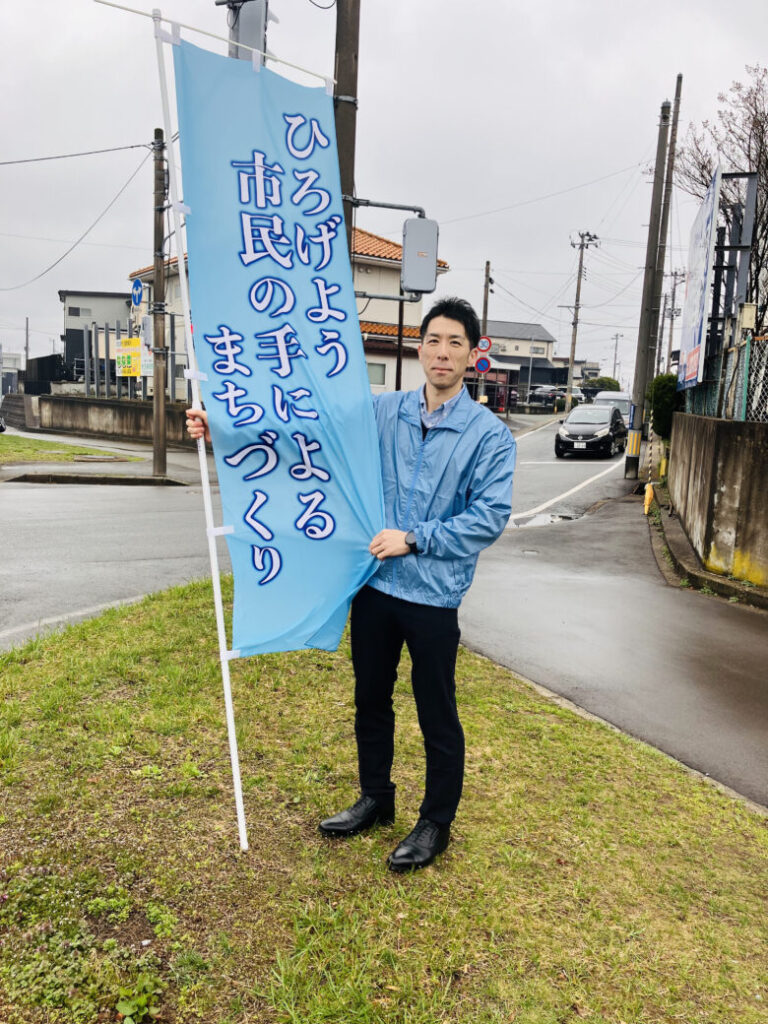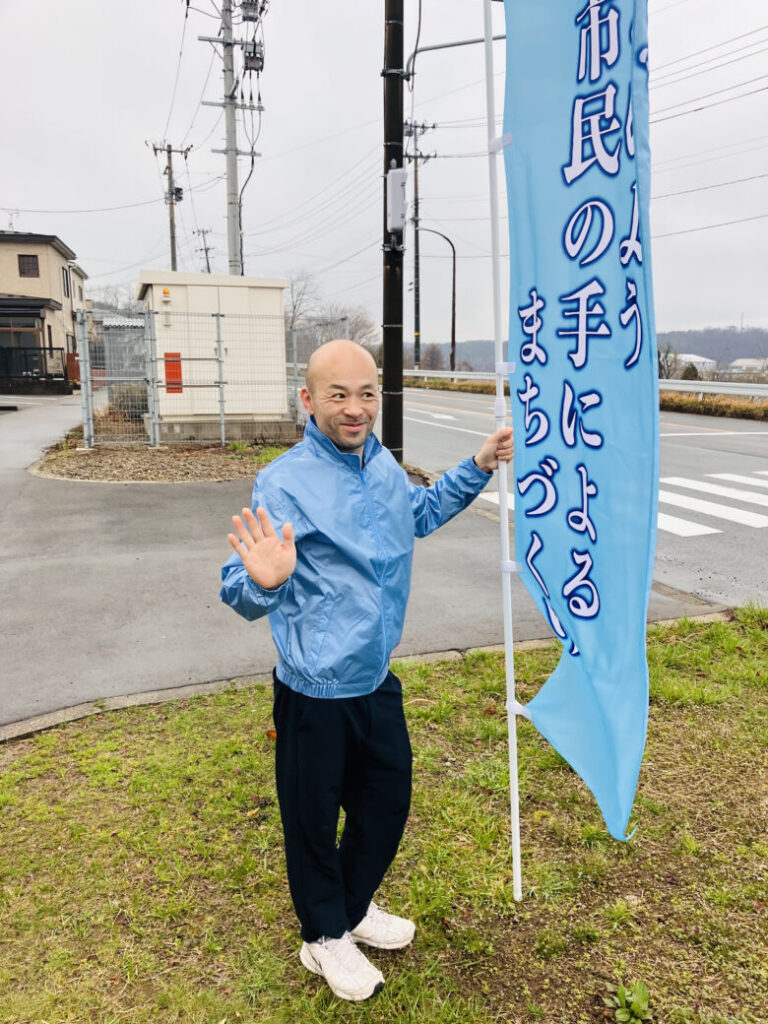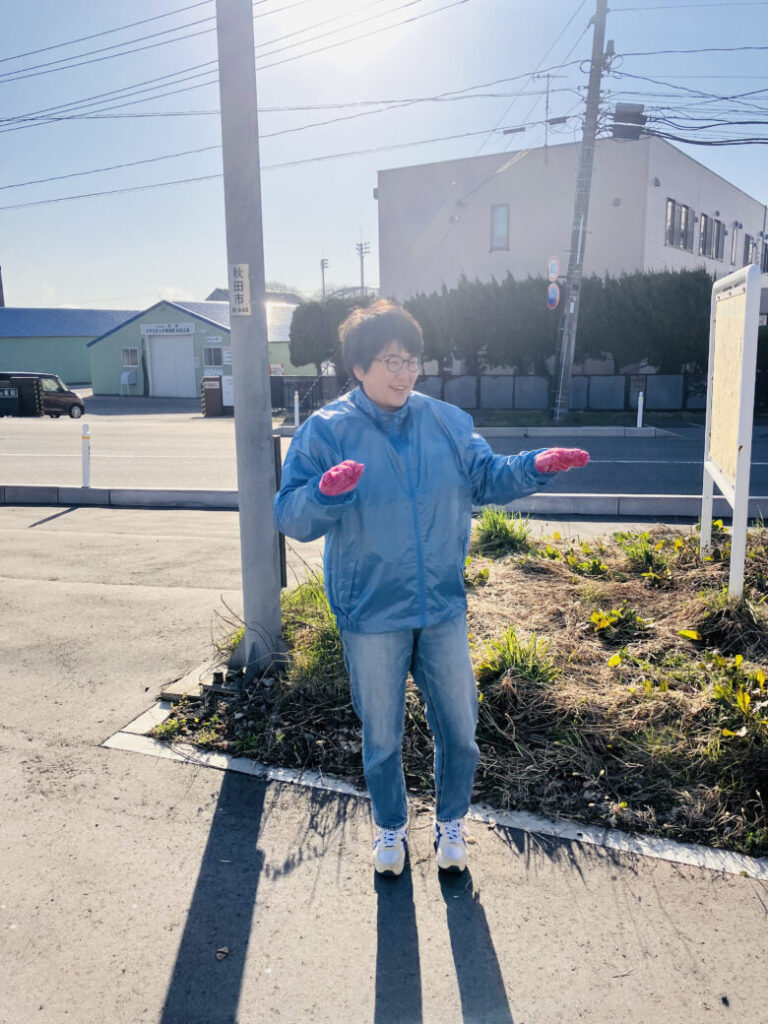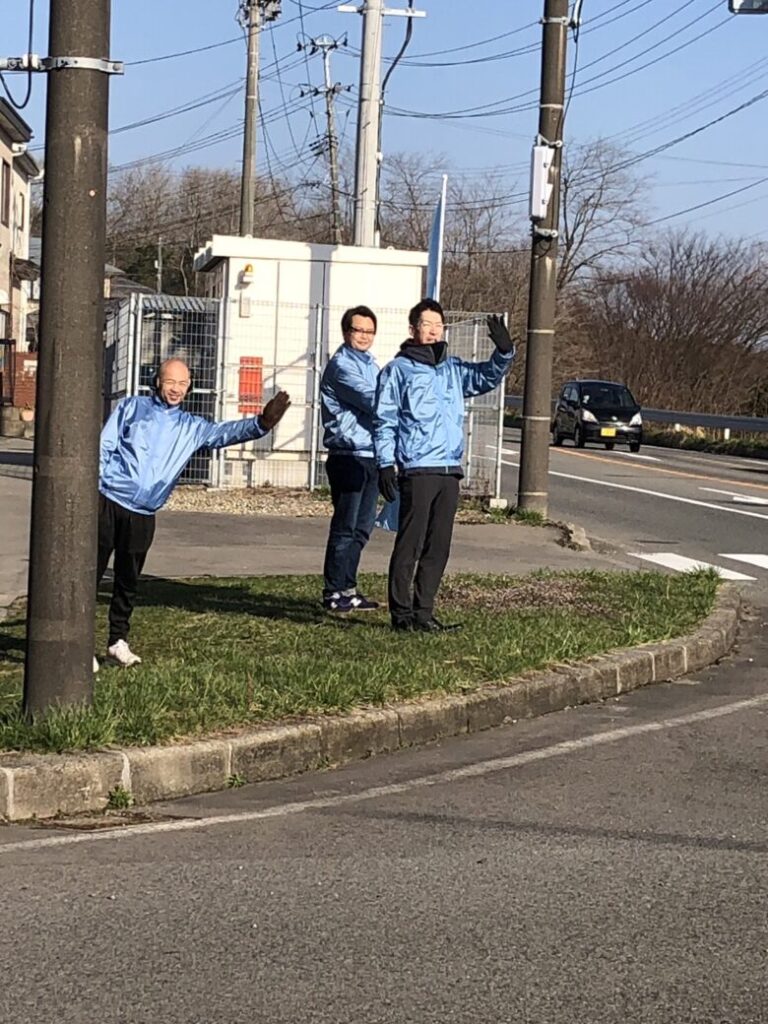辻立ちとは、政治家などがする街頭演説のことを指しますが、日本では選挙期間前の演説等は禁止されていますので、交差点などの車のドライバーから見えやすいところに立って、手を振ったりする方が大半です。私は、ドライバーの皆さんには聞こえないとは思いますが、「おはようございます!」「いってらっしゃい!」「お仕事頑張ってください!」と車や歩いている方へ挨拶を行っており、辻立ちというよりは「朝の挨拶運動」と自分の中では位置付けて行っていました。勝平新橋や新川橋の近くで辻立ちを行うと、秋田商業高校の生徒さんはすごく元気にニコニコしておはようございます!と返してくれますので、さすが「人づくりの秋田商業高校」だなぁと毎回感激しています。
市内で見かける辻立ちは1人で行っているのが多いようですが、私の場合は、たくさんの友人が入れ替わり一緒に立ってくれました。友人全員、「朝から太陽をいっぱい浴びて元気に挨拶する、ってこんなに気持ちいいものなんだ!」と言ってくれました!私も同じことを思いました!
辻立ちに関しては、始める前にこれって意味あるのかな、と思ったこともありましたが、いざ始めてみると、お仕事や学業を頑張る方々に、朝から感謝しながらご挨拶できる、こんな素敵なことだったんだ!と、とらえ方が180度変わりました。




Morning Greetings Exercise
Tsujidachi refers to the street speeches made by politicians, but in Japan, speeches before election campaigns are prohibited. Therefore, most people stand in visible areas such as intersections and wave their hands to drivers passing by. Although I don’t think the drivers can hear me, I greet them by saying “Good morning!”, “Take care!”, or “Do your best at work!” to cars and pedestrians. In my mind, I don’t consider it to be a tsujidachi, but rather an “morning greetings exercise”. When I do tsujidachi near Katsuhira Shinbashi Bridge or Shinkawabashi Bridge, the students from Akita Commercial High School always respond with a cheerful smile and say “Good morning!” to me. Every time, I’m impressed by how they have developed themselves at “Akita Commercial High School,” which emphasizes human development.
In the city, many politicians seem to do tsujidachi alone, but in my case, many of my friends took turns standing with me. All of my friends said, “It feels so good to greet people with energy and soak up the sun from the morning!” I felt the same way too!
Regarding tsujidachi, I also wondered before starting whether it was worthwhile. But once I started, I realized that it was such a wonderful thing to be able to greet people with gratitude from early in the morning and encourage those who work hard at their jobs or studies. My perception of tsujidachi completely changed 180 degrees.
Ejercicio de saludo matutino
Tsujidachi se refiere a los discursos callejeros hechos por políticos, pero en Japón, los discursos antes de las campañas electorales están prohibidos. Por lo tanto, la mayoría de las personas se paran en áreas visibles como las intersecciones y agitan sus manos a los conductores que pasan. Aunque no creo que los conductores puedan escucharme, les saludo diciendo “¡Buenos días!”, “¡Cuídense!” o “¡Hagan su mejor esfuerzo en el trabajo!” a los autos y peatones. En mi mente, no lo considero un tsujidachi, sino más bien un “ejercicio de saludo matutino”. Cuando hago tsujidachi cerca del puente de Katsuhira Shinbashi o Shinkawabashi, los estudiantes de la Escuela Comercial de Akita siempre responden con una sonrisa alegre y me saludan con un “¡Buenos días!”. Siempre me impresiona cómo se han desarrollado en la “Escuela Comercial de Akita”, que enfatiza el desarrollo humano.
En la ciudad, muchos políticos parecen hacer tsujidachi solas, pero en mi caso, muchos de mis amigos se turnaron para estar conmigo. Todos mis amigos dijeron: “¡Se siente tan bien saludar a las personas con energía y disfrutar del sol desde la mañana!” ¡Yo también sentí lo mismo! Con respecto al tsujidachi, también me pregunté antes de empezar si valía la pena. Pero una vez que empecé, me di cuenta de que era una cosa maravillosa poder saludar a las personas con gratitud desde temprano en la mañana y animar a aquellos que trabajan duro en sus trabajos o estudios. Mi percepción de tsujidachi cambió por completo 180 grados.

